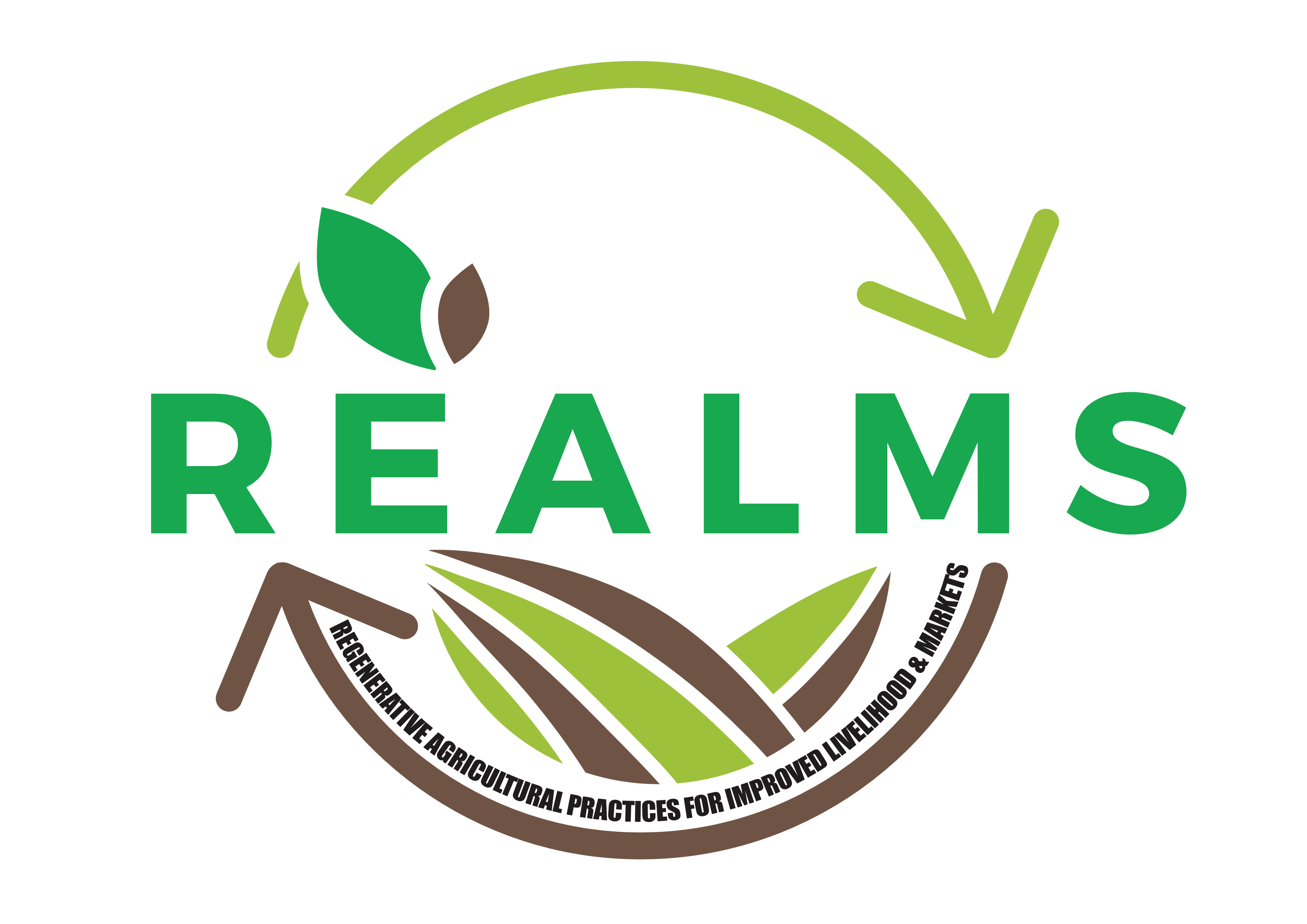Adoption of regenerative agricultural practices
Adoption of regenerative agricultural practices by smallholder farmers, leading to improved soil and water quality and improved livelihoods of smallholder farmers:
For this stage, a participative approach to decision-making and learning is taken, Peer-to-peer learning and support will be central. Building on existing social structures and making trainings needs-based, increases the likelihood that farmers will chose to be part of trials. The focus is providing farmers with access to knowledge and training, areas that are often mentioned by farmers as main barriers to being able to implement practices. REALMS will work with local extension services and other service providers where possible. It is assumed that when peer-to-peer and needs-based learning are effective, in combination with increased access to affordable services, increasing numbers of farmers will choose to adopt regenerative practices. Although this assumption is not well researched, the approach does address underlying factors for willingness to adopt as well as main barriers to successful adoption of new practices by farmers. In other East-African SNV projects this connection between local SMEs and farmers have worked successfully (TIDE, KMDP). When adoption leads to economic benefits, such as reduced inputs, increased yields, better prices or increased soil quality, farmers will continue to practice regenerative agriculture.The connection between economic benefits and continued adoption of practices will be part of the REALMS learning agenda. Special attention will be provided to women and youth farmers, to ensure they are not only included in trainings, but are also able to benefit and possibly take leadership positions in trainings. This also calls for sensitisation of wider farmer study groups.

